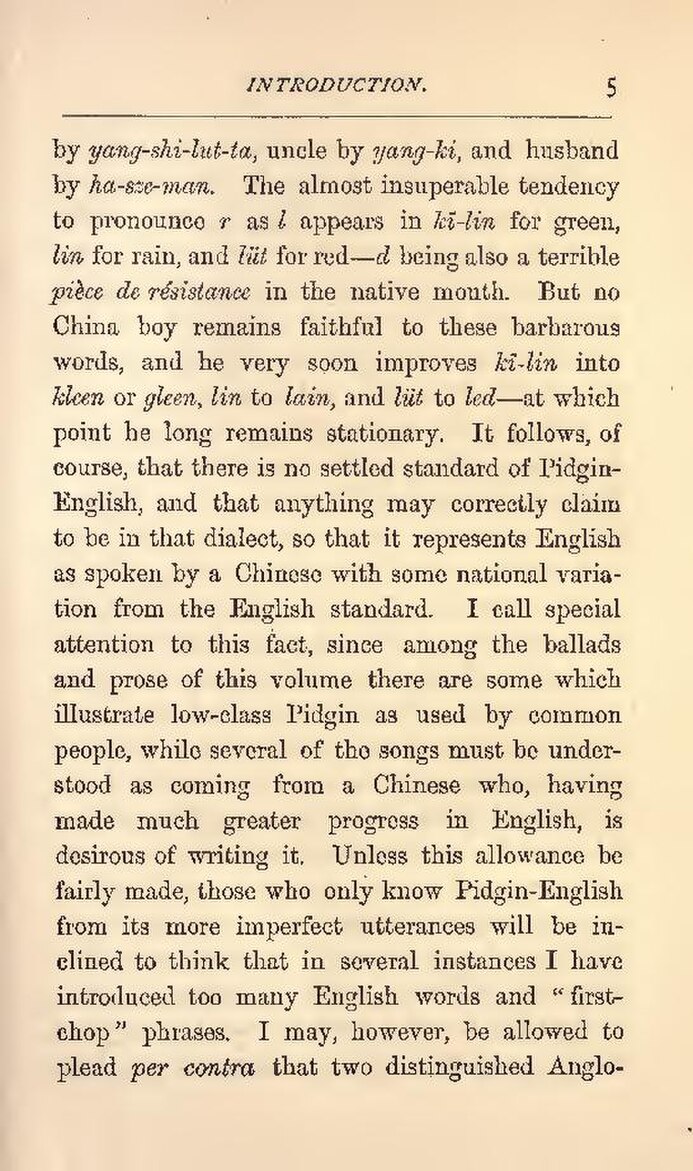by yang-shi-lut-ta, uncle by yang-ki, and husband by ha-sze-man. The almost insuperable tendency to pronounce r as l appears in kī-lin for green, lin for rain, and lüt for red—d being also a terrible pièce de résistance in the native mouth. But no China boy remains faithful to these barbarous words, and he very soon improves kī-lin into kleen or gleen, lin to lain, and lüt to led—at which point he long remains stationary. It follows, of course, that there is no settled standard of Pidgin-English, and that anything may correctly claim to be in that dialect, so that it represents English as spoken by a Chinese with some national variation from the English standard. I call special attention to this fact, since among the ballads and prose of this volume there are some which illustrate low-class Pidgin as used by common people, while several of the songs must be understood as coming from a Chinese who, having made much greater progress in English, is desirous of writing it. Unless this allowance be fairly made, those who only know Pidgin-English from its more imperfect utterances will be inclined to think that in several instances I have introduced too many English words and "first-chop" phrases. I may, however, be allowed to plead per contra that two distinguished Anglo-
